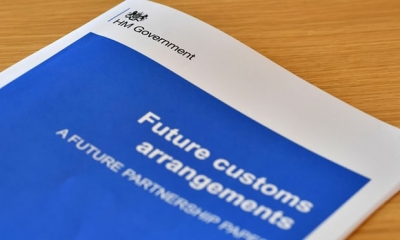Reading between the lines, and considering what was said and unsaid, and the way the reports were published, tells us much about the government’s thinking on Brexit.
I intend to provide some analysis and commentary here, rather than a complete summary of the papers (which can be found here). But to provide a cursory overview, the papers cover:
• data flows and data privacy,
• the trade in goods,
• customs,
• access to government documents,
• the Northern Irish land border,
• dispute resolution, and
• civil judicial cooperation.
A separate paper in June covered the rights of EU nationals in the UK and vice versa.
The documents outline the approach the UK government will take as its starting point in negotiations, rather than any indication of the final outcome, which is of course unknowable at this stage. (There are exceptions; for example the paper on data protection outlines a legislative route the government could take unilaterally – more analysis on this from PLMR’s Brexit Unit is here).
The key points to emerge are that the government wants to find innovative and technological solutions to the Northern Irish conundrum (how to honour the Belfast Peace Agreement promising an open border with the Republic), that the EU’s General Data Protection Regulation will be enshrined in UK law, and we will claim to have left the jurisdiction of the European Court of Justice.
The documents show the government has all but abandoned Ms May’s former “playing cards close to one’s chest” approach. It is clear that the secretive approach was generating uncertainty for businesses and a belief that the government has not thought through the details of Brexit. This new approach seeks to dispel that.
The audience for these documents seems to be primarily the business community rather than voters or the EU and its Member States. While Northern Ireland is primarily a political and security issue, the other papers are on topics of keen interest to businesses. For its part, the EU officials have not commented on the documents, sticking instead to their line that the divorce terms and settlement must be agreed first.
The timing indicates that the government wants to start the Autumn political season on the front foot, having effectively muted criticisms about a lack of detail on Brexit. The Opposition has offered some criticism as one would expect, but little of it seems to have gained traction. (This week Mr Corbyn has been touring Scotland rather than fronting the media on these issues).
Some topics were notable for their absence – there was no paper on the trade in services, which is enormously important to the UK economy. Perhaps that negotiating topic is just too important and sensitive for the government to spell out its position at this stage. Details of future cooperation on security, military and foreign affairs matters remain unaddressed, perhaps because that issue is of less immediate import to business confidence.
Early indications are that this approach is working. While the value of the Pound Sterling continues to struggle against broader macro-economic factors, the documents provide the government with a credible claim to have provided detail and as much certainty as they can at this early stage. It remains to be seen whether the EU will come under pressure to give more detail of its position. But that pressure, if it comes, will have to stem from the remaining Member States and from European businesses.




